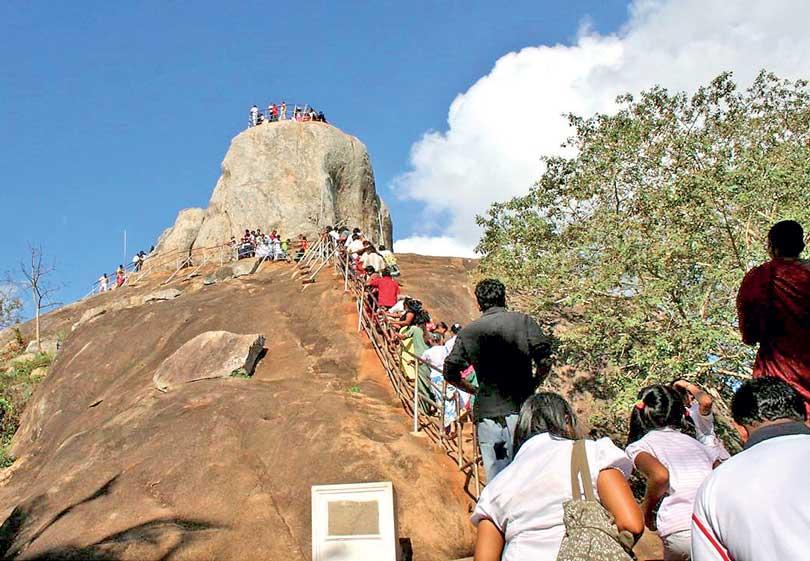21 Jun 2024 - {{hitsCtrl.values.hits}}

The Buddha taught, “Do not believe until you practice and experience the teaching
This critical inquiry is a fundamental aspect of Dhamma, distinguishing it from other faiths where blind belief and acceptance often play a major role
Unlike blindly following the religion one is born into, the Buddha encourages inquiry
 The Buddha’s path, or Dhamma, is universal and non-sectarian. It rejects blind faith and emphasises results, inviting individuals to “come and see.” The Buddha taught, “Do not believe until you practice and experience the teaching.” Rather than merely explaining the meaning of sickness, the Dhamma guides individuals on what needs to be done. It focuses on present-moment actions in birth, life, and death. While the past cannot be changed, the future can be controlled through skillful and precise actions in the present moment.
The Buddha’s path, or Dhamma, is universal and non-sectarian. It rejects blind faith and emphasises results, inviting individuals to “come and see.” The Buddha taught, “Do not believe until you practice and experience the teaching.” Rather than merely explaining the meaning of sickness, the Dhamma guides individuals on what needs to be done. It focuses on present-moment actions in birth, life, and death. While the past cannot be changed, the future can be controlled through skillful and precise actions in the present moment.
Is Buddhism, as we are taught today, the authentic discourse of the Buddha? To those who blindly accept teachings without question, my inquiry may stir controversy. However, I am entitled to a convincing explanation regarding the accuracy of the scriptures. The Buddha encouraged us not to accept teachings blindly but to explore and verify for ourselves. This critical inquiry is a fundamental aspect of Dhamma, distinguishing it from other faiths where blind belief and acceptance often play a major role.
How could such deep and complex teachings, as those preached by the Buddha, have been perfectly and precisely documented after a substantial lapse of time? We often struggle to recall a story told to us a few minutes later. Moreover, the average person’s literacy and education today are far superior to those in the Buddha’s era, 25 centuries ago, yet we find even simple mental tasks challenging. As a Buddhist, I feel compelled to question the authority of the teachings as they are currently presented, word for word. I am sure other faiths face similar issues because human error and interpretation likely influenced the recording of these sayings.
Unexamined conviction
Unlike blindly following the religion one is born into, the Buddha encourages inquiry. For those who seek understanding, conscience forbids unexamined conviction, casting doubt on all theism. The essential question the Buddha poses is whether we can lead good and truthful lives and comprehend our bliss in this very life. If I call myself a Buddhist, I must embrace the entire paraphernalia of ritual religiosity in ‘Buddhism,’ which often feels empty of substance.
The Dhamma aligns more closely with scientific propositions than with theological ones. It asserts that all things are transitory, continually arising, becoming, varying, and vanishing; nothing exists independently or essentially. This perspective poses no threat to the Dhamma, which states that we are in a state of uninterrupted change (flux), where situation and sensory requirements help us find ways to delight. Atheists who insult ‘believers’ of other viewpoints should first address the inexplicable areas within their own ideas, pronouncements, and hypotheses rather than dwelling on delusions. Darwinists, for example, have not provided a comprehensive answer to the vital question of speciation; a rational, uncertainty-free explanation is expected.
Neither Darwin nor the neo-Darwinians have offered a thorough explanation of the ‘Evolution of Species.’ The Dhamma emphasizes that truth can be comprehended through rational application and mind-centered empiricism (experiment and experience), which is accessible to everyone without relying on interpreters, researchers, or academic studies.
Dhamma and Science:
Professor Rhys Davids noted that he examined every major religion and found none that outshine the beauty and depth of the Buddha’s teachings. He is pleased to shape his life according to these principles. Similarly, Albert Einstein, the father of modern science, stated that he is not a religious person, but if he were, he would be a Buddhist. Einstein explained that a field is not an actual model for space-time events, but a “continuum of probability distributions of potential measurements as a function of time.” This means that the field encompasses all possible energy and information states, which then manifest as space-time events. Matter is a space-time event, and our physical bodies are space-time events. We often confuse ourselves with these events, when in reality, we are the ones who cause them.
Today, we live in a world of stark contradictions: immense wealth coexists with extreme poverty, as 1.5 billion people, one-fourth of the global population, live in constant want. Despite remarkable advances in medicine and healthcare, 10 million people die annually from easily treatable diseases. Daily trade in lethal weapons exceeds millions of dollars, yet over 7 million children die of hunger, and 800 million people are severely undernourished. Most alarming is our relentless pursuit of unlimited growth on a planet with rapidly diminishing finite resources. As we march into the future, our world suffers and urgently needs a cure if humanity is to survive and thrive in the next century.
This approach encourages practitioners to perceive the interconnectedness of the world, viewing all living beings—whether human or animal—as brothers and sisters, and directing their thoughts towards the welfare of all beings. Rather than explaining the meaning of sickness, the Dhamma guides individuals on what actions to undertake. It emphasizes living in the present moment, offering a path of action throughout the cycles of birth, life, and death. While the past cannot be altered, the future can be positively influenced by skillfully and mindfully acting in the
present moment.
Scientific method
The advocates of the scientific method argue that belief can only be eliminated by adhering strictly to scientific principles. However, scientists themselves rely on confidence and faith in the power of reason, despite some scientific concepts remaining unproven or disproven. In the year 2000, Arthur C. Clarke, the British-born world-renowned Sri Lankan scientist, declared, “I don’t believe in God or an afterlife,” identifying himself as an atheist and describing himself as a “crypto-Buddhist,” asserting that Buddhism is not a religion. Speaking about religion, he remarked, “One of the great tragedies of humankind is that morality is hijacked by religion.”
Scientific concepts often lack precise definitions; for example, the term ‘species’ in biology is notoriously difficult to define due to numerous ambiguous areas. However, these concepts remain reasonably and practically applicable. Darwin proposed that one species branched off and evolved into a completely new species, but the ongoing dynamic process or continuous flux makes it challenging to pinpoint where one species ends and another begins.
Is Buddhism scientific?
‘These knowledge systems cannot be fully understood through the lens of modern science due to the inherent constraints of its broad paradigms. I have observed numerous debates in the media regarding the scientific nature of Buddhism, with some authors attempting to validate Buddhist beliefs by drawing on findings from modern science. However, this often results in superficial conclusions, such as that.’—These conclusions are trivial and not necessary. Buddhism is not scientific, neither is science Buddhistic; and it will never be so.’ – Prof. Arjuna de Soysa
[email protected]
28 Dec 2024 1 hours ago
28 Dec 2024 1 hours ago
28 Dec 2024 2 hours ago
28 Dec 2024 3 hours ago